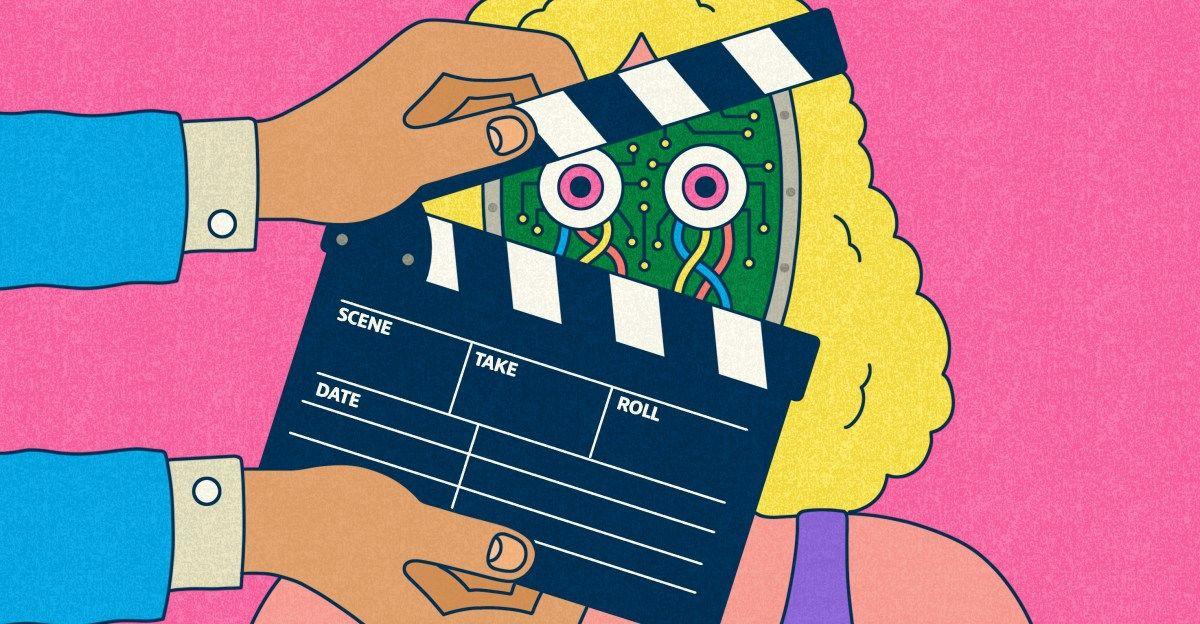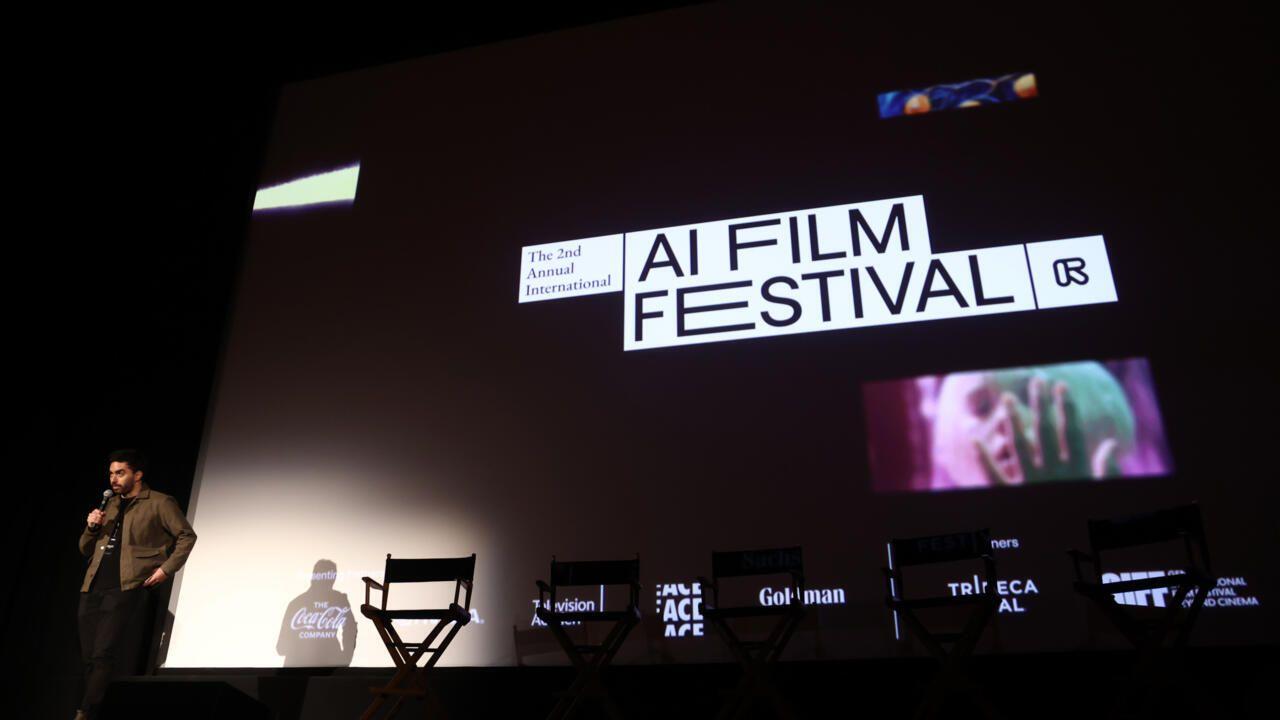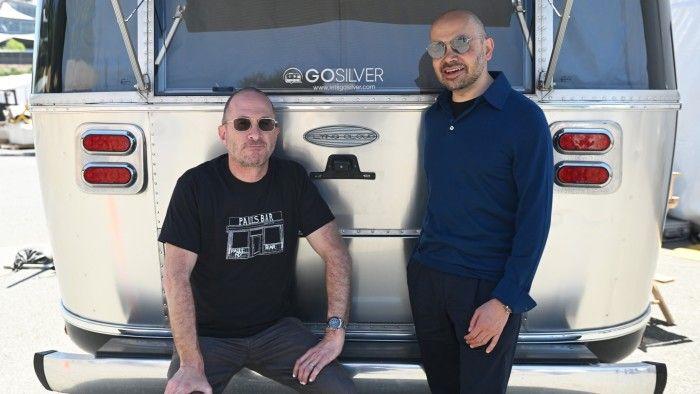AI-Generated Video Sparks Copyright Debate in Hollywood
2 Sources
2 Sources
[1]
AI won't put Hollywood out of business, Runway CEO and Agbo chief innovation officer say
"These are exceptional tools for great artists," Valenzuela said, referring to the AI image and video making models his company and others, such as OpenAI, have been releasing. He said he regretted how polarized the conversation about AI in the creative arts had become. "It's really hard to get nuanced conversations," Valenzuela said. "I think we get into extremes. This is either destroying everything we know or it is the best thing we've ever seen in our lifetime. I think it's like none of both. It's somehow in between." Runway is known for its text-to-image and text-to-video generative AI models. At Brainstorm Tech, Valenzuela played a short video that highlighted how quickly Runway's AI models have improved in just two years, with its latest Gen 3 Alpha model able to compose one-minute long, cinematic video clips. But the company has been sued by artists who claim the company infringed on their copyrights by copying their works without permission and using them to train AI models. Runway has been cagey about what data has been used to train its models, saying for its latest Gen 3 Alpha model only that it was proprietary mixture of publicly-available and private data. Aust said that angst about the impact of new technology has roiled Hollywood since the very beginning of the movie industry -- fears about the advent of sound, color, television, digital production, computer-generated images, streaming, and now AI sparking similarly existential concerns. "I think we've been here before and it is important to recognize that Hollywood exists because of technology," he said. "I don't see AI as something that is going to kill Hollywood." He said that Agbo, like other Hollywood production houses, was mostly using generative AI models to do the initial "visualization" for films -- creating preliminary story boards and concept images for what the look of a film might be. He said these were often being used at the earliest stages of a project's development, when a production house is still trying to pitch the idea for a project to studios or producers. Valenzuela urged artists to experiment with AI tools -- to discover what their strengths and weaknesses are -- and not to dismiss them out of hand. He said the best uses of the technology would push the boundaries into new art forms, comparing the current stage of AI to the earliest days of photography, when people referred to photographs as "mirrors with memories" because they had no language to describe the new art form. "Try to go for the things that don't have names, that you've never seen before," he said.
[2]
Runway CEO Says Artists Should Embrace AI, Not Fear It - ExBulletin
That was the message from Cristobal Valenzuela, co-founder and CEO of startup Runway, and Jake Aust, a veteran television producer who is now chief innovation officer at Agbo, who both spoke at the conference. Fortunes Brainstorm Tech Conference in Deer Valley, Utah, Tuesday. "These are exceptional tools for great artists," Valenzuela said, referring to the AI models for creating images and videos that his company and others, such as OpenAI, have released. He said he regrets the polarization of the debate over AI in the creative arts. "It's really hard to have nuanced discussions," Valenzuela said. "I think we're going to extremes. It either destroys everything we know or it's the best thing we've ever seen in our lifetimes. I think it's neither. It's kind of in between." Runway is known for its text-to-image and text-to-video generative AI models. At Brainstorm Tech, Valenzuela showed a short video that highlighted how quickly Runway's AI models have improved in just two years, with its latest Gen 3 Alpha model capable of composing one-minute cinematic video clips. But the company has been sued by artists who claim the company violated their copyright by copying their work without permission and using it to train AI models. Runway has been tight-lipped about the data it uses to train its models, saying that for its latest Gen 3 Alpha model, it was only a proprietary mix of publicly available and private data. According to Aust, anxiety about the impact of new technologies has been plaguing Hollywood since the very beginning of the film industry. Fears about the advent of sound, color, television, digital production, computer-generated imagery, streaming and now artificial intelligence are raising equally existential concerns. "I think we've been through this before and it's important to recognize that Hollywood exists because of technology," he said. "I don't see artificial intelligence as something that's going to kill Hollywood." He said Agbo, like other Hollywood production houses, primarily uses generative AI models to do the initial visualization of films, creating preliminary storyboards and concept art of what a film might look like. He said these models are often used in the early stages of a project's development, when a production house is still trying to pitch the idea of a project to studios or producers. Valenzuela urged artists to experiment with AI tools to discover their strengths and weaknesses, not dismiss them outright. He said the best uses of the technology would push the boundaries of new art forms, comparing the current stage of AI to the early days of photography, when people talked about photographs as mirrors with memories because they had no language to describe the new art form. Try to go for things that don't have names, that you've never seen before, he said. To learn more about Brainstorm Tech 2024: Google Chief Scientist Jeff Dean: AI Needs Algorithmic Breakthroughs, and AI Is Not Responsible for Rising Data Center Emissions Wiz CEO Says Security Market Consolidation Is Really Necessary As Rumors of $23 Billion Google Acquisition Grow Why Grindrs CEO Thinks Synthetic Employees Are About to Spark a Brutal Talent War for Tech Startups
Share
Share
Copy Link
A new AI-generated video featuring Tom Cruise has ignited a fierce debate about copyright and intellectual property in Hollywood, raising questions about the future of filmmaking and actor rights.

AI Video Stirs Controversy in Hollywood
A recent AI-generated video featuring a hyper-realistic digital replica of Tom Cruise has sent shockwaves through Hollywood, igniting a heated debate about copyright, intellectual property, and the future of filmmaking. The video, which showcases the actor in various scenarios he never actually filmed, has raised serious concerns among industry professionals and legal experts alike
1
.The Technology Behind the Controversy
The video in question was created using advanced artificial intelligence and machine learning techniques, specifically employing deepfake technology. This AI-powered method allows for the creation of highly convincing synthetic media by manipulating and combining existing images and videos. The result is a digital doppelganger that can be made to say or do almost anything, blurring the lines between reality and fiction
2
.Legal and Ethical Implications
The emergence of this AI-generated content has sparked intense discussions about copyright infringement and the protection of actors' likenesses. Legal experts are grappling with questions about who owns the rights to an actor's digital likeness and how existing copyright laws apply to AI-generated content. Some argue that using an actor's likeness without permission could constitute a violation of their publicity rights
1
.Industry Reactions and Concerns
Hollywood unions, including SAG-AFTRA, have expressed deep concern about the potential misuse of AI technology in film production. They fear that AI-generated performances could potentially replace human actors, leading to job losses and a fundamental shift in the nature of acting as a profession. Additionally, there are worries about the potential for AI to be used to create unauthorized or inappropriate content featuring actors without their consent
2
.The Future of Filmmaking
While some view AI as a threat to traditional filmmaking, others see it as a tool with immense creative potential. Proponents argue that AI could revolutionize the industry by reducing production costs, enabling the creation of complex visual effects, and even resurrecting deceased actors for new performances. However, these possibilities come with their own set of ethical dilemmas that the industry must address
1
.Related Stories
Regulatory Challenges
As AI technology continues to advance rapidly, lawmakers and industry leaders are struggling to keep pace with appropriate regulations. There is a growing call for clear guidelines and legal frameworks to govern the use of AI in entertainment, balancing innovation with the protection of individual rights and creative integrity
2
.Impact on Actors and Creatives
The AI controversy has left many actors feeling vulnerable and uncertain about their future in the industry. Some fear that their performances could be replicated or manipulated without their knowledge or consent, potentially damaging their reputation or livelihood. This has led to increased demands for contractual protections and clearer guidelines regarding the use of an actor's likeness in AI-generated content
1
.References
Summarized by
Navi
Related Stories
Recent Highlights
1
Google Gemini 3.1 Pro doubles reasoning score, beats rivals in key AI benchmarks
Technology

2
Meta strikes up to $100 billion AI chips deal with AMD, could acquire 10% stake in chipmaker
Technology

3
Pentagon threatens Anthropic with supply chain risk label over AI safeguards for military use
Policy and Regulation








